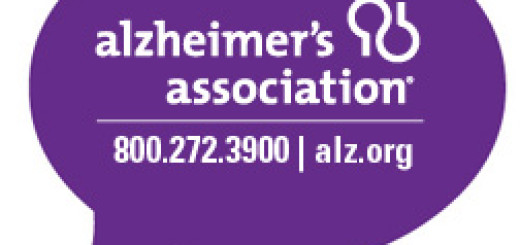Self-care for caregivers: Six science-backed tips that’ll help support you
By Kerry Larkey, MSN, RN
Caregivers of people living with Alzheimer’s disease have one of the most rewarding—and toughest—jobs out there. According to the Alzheimer’s Association® 2023 Alzheimer’s Disease Facts and Figures Report, there are 1.3 million Californians and 84,000 Nevadans who are currently caregivers.
Eighty-three percent of the help provided to older adults in the U.S. comes from family members, friends or other unpaid caregivers. Nearly half of all caregivers who provide help to older adults do so for someone living with Alzheimer’s or another dementia.
In spite of being immensely fulfilling, caring for a loved one can also be physically and emotionally challenging, leaving you feeling drained. Facts and Figures also stated that caregivers of people with dementia were significantly more likely to experience depression and anxiety than non-caregivers. Sixty-one precent of caregivers in California and 54% of caregivers in Nevada reported at least one chronic health condition.
To prevent chronic stress from affecting your health, it’s important to practice self-care on a regular basis. Here are six simple ways to get started.
Tip No. 1: Calm your mind
Relaxation is an effective tool for managing caregiver strain, especially when feeling anxious or overwhelmed. Meditation is a simple way to reduce stress, depression, and anxiety[1].
How to start:
- Use a meditation book, video, or phone app as a guide. Check out Calm, Headspace, and Insight Timer.
- Find out if your local community center offers meditation classes. Practicing in a group can be more motivating than doing it alone.
- Experiment! While you might find one type of meditation tough to stick to, another may feel like the perfect fit for you.
- Practice deep breathing throughout the day. Meditation doesn’t have to happen when you’re seated cross-legged on a cushion! Breathing mindfully counts.
Tip No. 2: Take care of yourself
Caregivers often neglect their own needs, putting them at higher risk for anxiety, depression, and overall lower quality of life[2]. Taking care of yourself first might feel uncomfortable to begin with and guilt is a normal reaction. But caring for yourself restores your energy and allows you to give the best possible care to your loved one.
How to start:
- Schedule time away from caregiving on a weekly—preferably daily—basis to take care of your needs.
- Ask a dependable friend or family member for help. It can be hard to step away from caregiving unless you are confident the person taking your place is reliable. Make sure the helper knows how to help your loved one with eating, moving and using the bathroom. Keep these instructions in a notebook along with emergency contact information and any challenging behaviors—and solutions.
- Enroll your loved one in adult day center. You benefit from time away while your loved one enjoys social activities while receiving professional care.
- Sign up for respite care. Contact the Alzheimer’s Association® 24/7 Helpline at 800.272.3900 to find out how to access respite care services. There may be some limited financial support for respite care services in some areas.
- Use the Alzheimer’s Association’s Community Resource Finder to locate nearby programs or call the 24/7 Helpline at 800.272.3900.
Tip No. 3: Prioritize your sleep
Many people living with Alzheimer’s are more confused at night and have trouble sleeping. As a result, 50 to 70% of caregivers lose sleep because of their loved one’s restlessness[3]. Chronic sleep loss leads to serious health conditions like diabetes, obesity, and cardiovascular disease.
How to start:
- Create a daily schedule with a consistent bedtime and waking time—even on weekends.
- Start a fitness routine. Exercise helps people fall asleep more easily[4].
- Practice good sleep hygiene by limiting tobacco, alcohol, and caffeine use.
- Create a relaxing sleep environment by turning the lights down low, adjusting the temperature, and removing all electronic devices from the bedroom.
- A UCSF researcher shares what could be inhibiting your sleep and changes for a better night sleep on our blog.
Tip No. 4: Move your body
Regular, moderate impact physical activity improves overall health by improving sleep quality while also reducing stress and depression[5]. An exercise routine with as little as two sessions per week can improve quality of life, physical, and mental health of caregivers[6].
How to start:
- Incorporate physical activity into your routine, starting with two days per week and then working up to more, if possible.
- Focus on activities that raise your heartrate (like walking, running, or swimming) and build strength (like lifting weights or yoga).
- Join a community sports league—it’s a great way to get moving and meet new people.
- Motivate yourself to stick with the exercise plan by signing up for a walk or run with other people. Join the Alzheimer’s Association Walk to End Alzheimer’s® the world’s largest event to raise awareness and funds for Alzheimer’s care, support and research.
- Check out other ways to love your brain.
Tip No. 5: Learn more about dementia
Education not only improves the quality of care you’re providing, it also reduces the amount of stress you feel while caring for your loved one[7]. The more you understand about Alzheimer’s and its progression, the better prepared you will be to both anticipate and handle the more difficult aspects of care like responding to behavioral changes and safety issues.
How to start:
- Read a book about dementia. To start, try:
- Alzheimer’s Disease and Dementia: What Everyone Needs to Know by Steven R. Sabat
- The 36-Hour Day: A Family Guide to Caring for People Who Have Alzheimer Disease and Other Dementias by Nancy L. Mace and Peter V. Rabins
- Coping with Behavior Change in Dementia: A Family Caregiver’s Guide by Beth Spencer and Laurie White
- Join an educational program offered by the Alzheimer’s Association Northern California and Northern Nevada Chapter.
- Review the educational programs and dementia care resources and information on caregiving provided by the Alzheimer’s Association.
Tip No. 6: Strengthen your support systems
A strong support system can help you cope with the emotional and practical needs that’ll undoubtedly come up as you care for a person with cognitive disease. Stress, fatigue, and psychological strain are all reduced when a caregiver’s needs are heard and validated. Social support systems also offer caregivers alternative perspectives and solutions for their challenges.
How to start:
- Ask for support and express yourself. Confide in a friend, spiritual advisor, journal—or even a pet—about the challenges you face.
- For professional help, seek out a trained therapist who can help you develop tools for managing stress. Cognitive behavioral therapy is particularly effective in managing caregiver strain[7].
- Join a caregiver support group. Talking to people with similar experiences can be extremely helpful, especially when expressing difficult emotions like anger or frustration. It can be comforting to know that you are not alone! Check out the Alzheimer’s Association Northern California and Northern Nevada Chapter’s Caregiver Support Groups.
Caring for someone with Alzheimer’s disease or dementia is rewarding—yet it certainly comes with its challenges. Making sure you’re caring for yourself just as well as you’re caring for your loved one, is key for both of you.
For more information on resources and caregiving tips visit alz.org.
The Community Resource Finder can help connect caregivers with additional resources like legal services, housing options, medical services, and transportation assistance. Additionally, you can call the 24/7 Helpline 800.272.3900 and speak with staff who speak English, Spanish, Chinese, Hindi, and many other languages.
References
- Pérez, Victoria, et al. “Mindfulness-Based Intervention for the Reduction of Compassion Fatigue and Burnout in Nurse Caregivers of Institutionalized Older Persons with Dementia: A Randomized Controlled Trial.” International Journal of Environmental Research and Public Health 19.18 (2022): 11441.
- Iravani, Behnam, et al. “Neuropsychiatric Symptoms of Alzheimer’s Disease and Caregiver Burden.” Frontiers in Neurology 13 (2022).
- Liu, Yin, et al. “Daily sleep, well-being, and adult day services use among dementia care dyads.” Aging & Mental Health 26.12 (2022): 2472-2480.
- “Are You Getting Enough Sleep?.” Centers for Disease Control and Prevention, https://www.cdc.gov/sleep/features/getting-enough-sleep.html. Accessed 11 January 2023.
- King, Abby C et al. “Effects of moderate-intensity exercise on physiological, behavioral, and emotional responses to family caregiving: a randomized controlled trial.” The journals of gerontology. Series A, Biological sciences and medical sciences vol. 57,1 (2002): M26-36. doi:10.1093/gerona/57.1.m26
- Prieto-Prieto, Josué et al. “Effects of a Home-Based Exercise Program on Health-Related Quality of Life and Physical Fitness in Dementia Caregivers: A Randomized Controlled Trial.” International journal of environmental research and public health vol. 19,15 9319. 29 Jul. 2022, doi:10.3390/ijerph19159319
- Lee, Su Jung et al. “Evaluating the Effectiveness of Community-Based Dementia Caregiver Intervention on Caregiving Burden, Depression, and Attitude Toward Dementia: A Quasi-experimental Study.” Clinical interventions in aging vol. 17 937-946. 10 Jun. 2022, doi:10.2147/CIA.S361071























